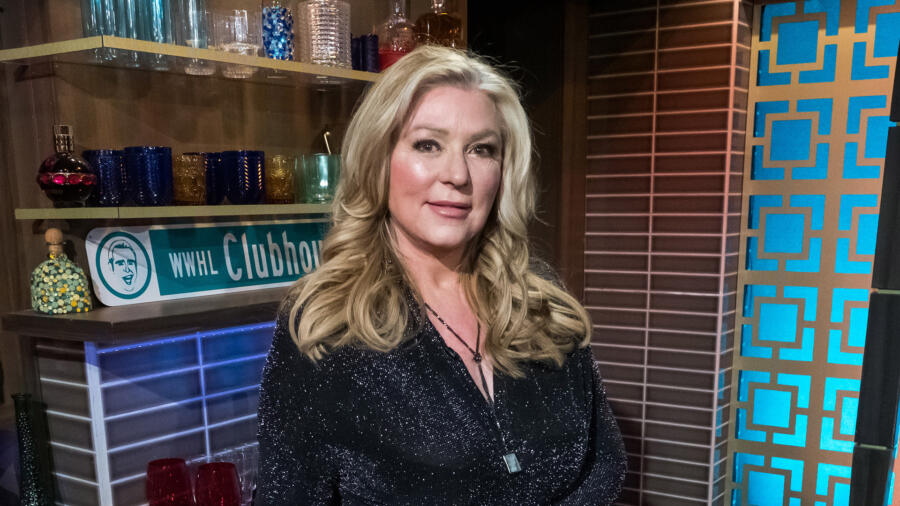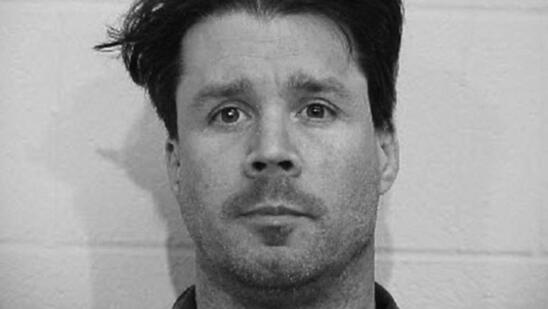In late 2014, Debra Newell first met John Meehan. Enamored with his charm, good looks and apparent love for her, she fell for him and they married only two months later. Meanwhile, other people in her life, including her adult children, raised doubts.
John was skilled in the art of love bombing (manipulation by overwhelming someone with loving words, actions and behavior) and what Debra later realized was coercive control, or micromanaging someone’s life in an effort to create dependency and dominate them. After nearly two years of enduring these manipulative behaviors, the Newell family found themselves in a perilous situation as they tried to get John, who had been lying about his past and his profession as an anesthesiologist, out of their lives. The nightmare ended when Newell’s youngest daughter, Terra, defended herself—and her family—in a literal fight to the death. After Meehan stabbed her and tried to abduct her, she stabbed him in self-defense. He died from his wounds a few days later.
The story of Newell’s life with Meehan, who earned the nickname “Dirty John” in his early life, based on his notoriously dishonest ways with women, was later turned into a podcast and TV show.
A&E True Crime spoke with Newell about her book, Surviving Dirty John, co-authored by M. William Phelps, where readers get a first-hand account of her harrowing experience with the con man, along with highlights about all she has learned about coercive control in the years since then.
What were some of the biggest warning signs that you see now that you didn’t see right away with John?
It went too fast and he wanted to get married right away, which is a red flag. He also had no friends. It is really essential these days that I get to know [a person’s] friends because that says a lot about who they are.
Also, he didn’t like my kids. He didn’t make an effort. He got into my business too soon, giving me advice. And he loved-bombed me to death. As much as it feels great to hear such good things about you, you have to be very cautious. I’ve learned from all of it.
How do you feel about how this ended for him?
The day of the stabbing, I thought to myself, Even if this guy goes to prison, I’m still going to be in fear the rest of my life. There would have been a lot more victims if he was still alive. As awful as it sounds, thank God it [ended this way].
[That day,] I reached out to one of the detectives who was actually working on [investigating] my car that [John] had set on fire. I had said, ‘I feel something’s going to happen. Please, please, please call me back and do something about John.’ And he never reached out to me.
When I reached out to him a few days after John’s death and I told him what had happened, he said, ‘Yeah, I heard. You just need to move on.’
I said, ‘I’m not moving on. I’m going to bring up the fact that four police stations did nothing about this, I’m going to do everything in my power to get laws passed for coercive control and to help other women.’
You’ve spoken with a couple of his exes. What was that like for you?
It was healing. Each of them had a very similar story to mine. They were intelligent, successful. I realized I wasn’t the only one. He was a great con man. For these women to be fooled, anyone could be fooled.
What do you feel like the TV series got wrong?
It really didn’t get into the details of what I did [to get away from him], the lengths I went to to hide, the [numerous] police stations I went to. I had two lawyers and two detectives [working on the case against John].
I’m naïve, don’t get me wrong, but I’m not as flat as they were showing. I was doing a lot of investigating, a lot of research on John, while I was with him. You just don’t walk away. You have to come up with a plan.
How far into your relationship was it when you said, ‘OK, I need to look into what’s going on here’?
It was six months. I didn’t realize how many red flags there were until I educated myself. A lot of women my age don’t realize that you don’t greet someone at the door [for a first date]. There’s a lot I was taught, or did back in the day, that are definitely no-no’s now. I felt it was really important to let women know what to do and what not to do when it comes to dating.
Can you provide a few examples?
Never reveal where you work or where you live. [Don’t share] too much about yourself in the beginning. Take it slow. Get to know their friends, get to know their family. Do a background check. Look for red flags.
People need to be more aware of what’s out there [about themselves], especially on dating websites. On [these] websites, change a little bit of the information. I know this sounds terrible because honesty is so important. I’m not saying to lie, but don’t reveal everything.
You’ve been doing a lot of work in protecting women from this kind of domestic abuse, including work on a senate bill in California. Can you talk about that?
Once the story came out, it was essential for me to share my story—for other women. I felt like I needed to have a voice because there is so much victim blaming out there. I read almost every single email, text message and [messages on] Facebook Messenger and Instagram from women going through something and just listen to them, give them advice.
I know several women who are in hiding, others who have changed their name, some who have left the country.
Your work is very much focused on coercive control, which is a new term for many people. Can you explain what that’s all about?
California State Senator Susan Rubio got a law passed on coercive control, which [expands protections for domestic survivors by allowing them to use descriptions of psychologically damaging and abusive behavior as evidence in family court hearings and criminal trials.] A law was also passed in Connecticut. The laws have to [be passed] state by state.
With these laws, you can get [a partner] arrested, if you have not been [physically] hurt, but you’ve been psychologically controlled. When I would go to police stations [when I was with John], they said, ‘You don’t have a mark on you. There’s nothing we can do.’
Spreading awareness is so important because [multiple] women a day are killed by their significant other.
How have the women you’re helping or have helped in the past found you?
Through the show and the podcast. It’s been amazing the amount of people who have reached out and the stories that I’ve heard—from someone being set on fire, to some people whose husbands have had a lot more money than them, so they’ve gotten custody of their kids, yet it was a very abusive relationship. I’ve talked to women who are in prison for defending themselves. It’s extremely sad.
What would success look like to you, in terms of your efforts to have laws on coercive control passed?
Getting the laws passed in every state, and spreading awareness. And teaching people that this could happen to anyone.
What about women who read your book and think, This might be happening to me. What should they do to feel confident that they need to take action?
Look up red flags, narcissist, sociopaths and psychopaths, and see if any of these men that they’re dating check off any of the boxes. It’s about awareness and educating themselves.
If you’re in an abusive relationship and need help, you can call the National Domestic Violence Hotline: 1-800-799-7233
Related Features:
Who is ‘Dirty John’ John Meehan?
Acting in Self-Defense: What It Means in the Eyes of the Law


